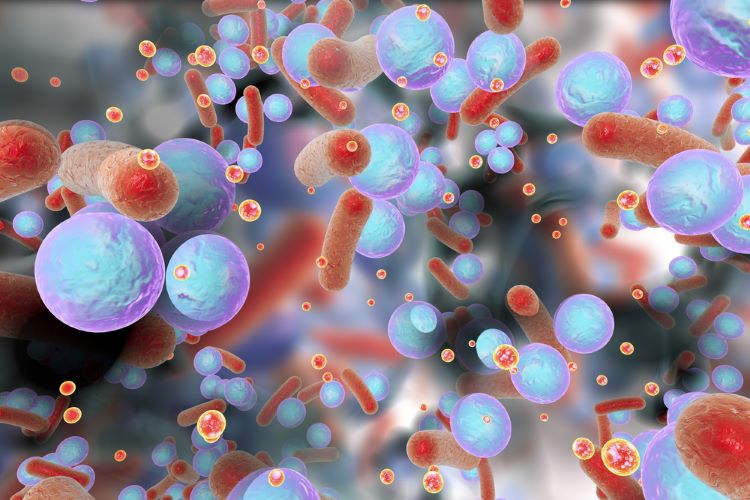Curbing AMR through sustainable antibiotic manufacturing
Posted: 31 August 2023 | Catherine Eckford (European Pharmaceutical Review) | No comments yet
Key recommendations highlighted in a recent report by the Access to Medicine Foundation offer pharmaceutical manufacturers ways to effectively manage the release of antibiotic waste into the environment, and thus contribute to the reduction of antimicrobial resistance (AMR).


[pharmaceutical companies] must take measures to manage antibiotic waste across the manufacturing supply chain”
2023 has so far, delivered a spectrum of change for antibiotic manufacturers across the pharmaceutical industry, from supply chain issues through to regulatory opportunities.
A recent report by the Access to Medicine Foundation has highlighted the management of waste and steps that pharmaceutical manufacturers of antibiotics can take to limit the risk of antimicrobial resistance (AMR).
The Access to Medicine Foundation urged for pharmaceutical companies to acknowledge the impact of their manufacturing practices are having on the environment. They must take measures to manage antibiotic waste across the manufacturing supply chain, the report emphasised.
When the global shortage of the antibiotic amoxicillin alongside a surge of respiratory infections occurred in January 2023, there was an increased demand for antibiotics. According to the present report, the European Medicines Agency (EMA) noted that this challenge resulted in manufacturing delays and production capacity issues. To prepare for anticipated winter antibiotic shortages, the EMA announced in July 2023 it had prepared recommendations for manufacturers.
As mentioned in the report, with the British Standards Institute (BSI) having launched a first-of-its-kind certification for Minimized Risk of Antimicrobial Resistance (AMR) in antibiotic manufacturing in June 2023, the importance of demonstrating responsibility in this area is becoming increasingly evident.
Strengthening and transforming the pharmaceutical supply chain
A key challenge shared by the Access to Medicine Foundation was that there are currently no regulations specifically targeting antibiotic discharge from manufacturing sites anywhere in the world. With positive action in this regard voluntary at present, the report provided proactive examples of a range of companies demonstrating good practice. These included GSK, Pfizer, Novartis and its generics unit, Sandoz, plus Teva and Viatris.
The report included recommendations for companies to make meaningful progress in limiting the AMR risk during the manufacture of antibiotics.
Recommendations for antibiotic manufacturers
Being proactive in antibiotic waste management
Positively, the research noted that firms such as GSK and Pfizer reported compliance with discharge limits at most of their upstream suppliers.
GSK declared that 100 percent of supplier sites are compliant with discharge limits. On the other hand, Pfizer reported the figure for their supplier sites to be over 86 percent.
This therefore demonstrates that achieving compliance on a larger scale is possible, the report assured. Yet to generate progress, guaranteeing transparency and accountability across the antibiotic supply chain is essential.
being proactive in adopting management practices and scaling responsibly practices is vital for companies to future-proof their business”
The report acknowledged that being proactive in adopting management practices and scaling responsibly practices is vital for companies to future-proof their business, especially considering how the global policy and procurement landscapes are shifting.
Pharmaceutical companies that hold market authorisations for antibiotics are uniquely positioned to drive change across the antibiotic supply chain.
Importantly, they can not only deliver responsible manufacturing at their own sites, but these companies can influence the standards and practices of the contract manufacturing organisations (CROs) that support the production of these medicines.
Prioritising effective wastewater management methods
A key recommendation made in the report was for companies to establish, quantify and monitor discharge limits for ensuring wastewater safety at their own manufacturing sites. Specifically, to minimise AMR risk more effectively, “companies can develop and implement comprehensive wastewater treatment processes to ensure the safety of their wastewater before it is released into the environment”.
A case study shared by the authors described Sandoz’s use of a membrane filtration process at its main antibiotic manufacturing site in Austria, as a method of removing bacteria from its wastewater.
Transparency across the antibiotic supply chain
While pharmaceutical companies can consider replacing non-compliant suppliers, they are also the position to share resources, expertise and analytical capabilities to support suppliers in achieving compliance with discharge limits. There is often a heavy dependence on a limited number of producers of a certain API that is needed to manufacture an antibiotic, so this is particularly important for the sustainability of the antibiotic supply chain, the report noted.
No company currently reports actual antibiotic discharge levels at its own sites or supplier sites, the report stated.
By investing in responsible manufacturing, companies can help curb rising drug resistance while positioning themselves favourably in the market”
“By investing in responsible manufacturing, companies can help curb rising drug resistance while positioning themselves favourably in the market,” Marijn Verhoef, Director of Operations and Research from Access to Medicine Foundation commented.
Procurers, for example, who can consider criteria related to the environment and sustainability when making purchasing decisions, are increasingly expecting companies to demonstrate comprehensive and effective practices to keep antibiotic waste within limits.
Notably, three companies including Sandoz and Viatris were awarded with tenders as part of the Norwegian Hospital Procurement Agency’s 2019 sustainable pilot procurement programme. This was partly achieved by having the highest score on environmental criteria, which specifically considered whether companies had environmentally friendly production in place to reduce the risk of AMR.
Future of the antibiotics supply chain
According to the report, regulation aimed at reducing AMR risk from manufacturing, which is currently lacking, may be introduced, or strengthened, in several countries. By following the recommendations made in the Access to Medicine Foundation report, pharmaceutical companies can ensure production of their antibiotics do not contribute to AMR, or negatively impact the environment, while being proactive to stakeholders increasing expectation of a manufacturer’s commitment to responsible manufacturing.
For example, in July 2023, the Responsible Antibiotics Manufacturing Platform (RAMP) published a framework, the report highlighted. This provides stakeholders with guidelines and independent criteria to evaluate and verify a company’s manufacturing practices in reducing the risks of antimicrobial resistance (AMR).
Related topics
Biopharmaceuticals, Drug Manufacturing, Drug Supply Chain, Industry Insight, Manufacturing, Research & Development (R&D), Sustainability, Therapeutics









